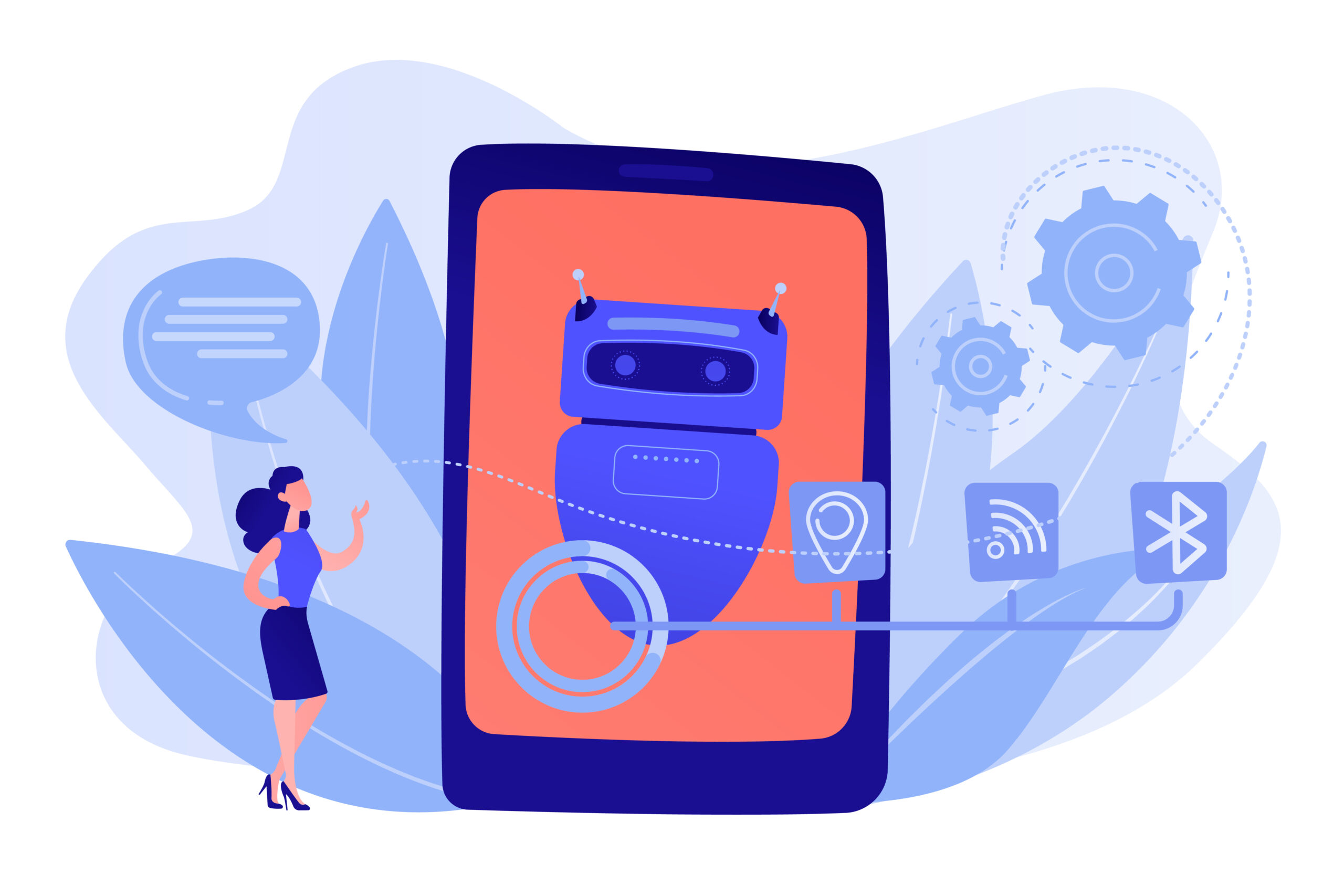In today’s competitive market, businesses need tools that boost efficiency and improve customer experience. Chatbot development has become a vital strategy that helps companies meet customer needs while reducing operational costs. This article explains why integrating chatbots drives growth and how it reshapes modern business operations.
What Are Chatbots and How Do They Work?
Chatbots are software programs designed to interact with users through natural language processing. These digital assistants communicate via text or voice, responding instantly to inquiries and performing tasks such as booking appointments or providing product information. Businesses often turn to a skilled chatbots development company to build tailored chatbot solutions that automate routine communication. This automation frees human agents to focus on more complex issues, improving overall productivity.
The Impact of Chatbots on Customer Service
Customer service plays a vital role in retaining clients and building a strong reputation. Chatbots transform support by offering faster, more reliable interactions that meet customer demands.
Faster Response Times
Customers expect quick answers. Chatbots deliver immediate replies, reducing wait times drastically. This quick service builds trust and satisfaction, encouraging repeat business. Without chatbots, companies risk losing potential customers who abandon slow or unresponsive platforms.
Availability 24/7
Unlike human staff, chatbots operate around the clock. They handle queries at any hour, ensuring customers receive support whenever needed. This constant availability improves brand reputation and helps companies tap into markets across different time zones without hiring additional personnel.
Handling High Volumes Efficiently
Businesses often face fluctuating customer demand. During peak hours or promotional events, chatbots manage large volumes of interactions without delays. They keep conversations organized and prevent bottlenecks, allowing businesses to maintain smooth communication regardless of traffic spikes.
How Chatbots Boost Sales and Marketing Efforts
Sales and marketing thrive when businesses connect effectively with potential customers. Chatbots enhance these efforts by engaging visitors, gathering information, and guiding prospects toward purchase decisions.
Lead Generation and Qualification
Chatbots can ask questions to identify potential customers’ needs and interests. By qualifying leads in real-time, they pass valuable information to sales teams, helping them focus on high-potential prospects. This process increases conversion rates and shortens sales cycles.
Product Recommendations
Chatbots suggest products based on user preferences or browsing history. This tailored approach increases the chances of making a sale by presenting relevant options instead of generic choices. The more accurately chatbots guide customers, the higher the likelihood of purchase.
Collecting Customer Feedback
Automated chat systems can gather customer opinions after transactions or interactions. This feedback helps businesses adjust products, services, or marketing strategies to better meet demand. Instant feedback also makes customers feel valued, strengthening loyalty.
Cost Efficiency Through Automation
Automating routine tasks can significantly cut costs and improve how teams operate. Chatbots play a key role in handling repetitive work, freeing up valuable human resources for more important responsibilities.
Reducing Support Staff Workload
Chatbots handle repetitive tasks like answering FAQs, scheduling, or basic troubleshooting. This reduction in workload allows companies to reassign human agents to more strategic roles, improving overall productivity and employee satisfaction.
Lower Operational Costs
Deploying chatbots lowers expenses related to call centers, training, and employee turnover. Automated systems require initial setup but provide continuous service at a fraction of the cost. Over time, this saves money and maximizes return on investment.
Enhancing User Experience Across Platforms
Delivering a smooth and engaging experience to customers wherever they interact with a brand is essential. Chatbots help businesses stay connected by offering consistent support across multiple platforms.
Multi-Channel Integration
Chatbots operate across websites, social media, and messaging apps, providing consistent service wherever customers engage. This cross-platform presence ensures businesses stay connected to their audience through preferred communication channels.
Conversational Interaction
Unlike static forms or FAQs, chatbots hold dynamic conversations. They adjust responses based on input, creating a more engaging experience. This interaction encourages users to spend more time on the platform, increasing brand exposure and potential sales.
Quick Problem Resolution
Chatbots provide instant solutions for common issues like order tracking, billing questions, or account updates. Fast resolution improves customer satisfaction and reduces the number of escalations to human agents, making the entire support process more efficient.
Building Brand Loyalty and Trust
Creating strong relationships with customers plays a crucial role in business success. Chatbots contribute significantly by maintaining clear communication and offering proactive support that builds trust over time.
Consistent Messaging
Chatbots deliver uniform information and tone, reinforcing brand identity. Consistency in communication builds credibility and helps customers feel confident about their interactions.
Proactive Assistance
Some chatbots initiate conversations to offer help or alert users to deals and updates. This proactive behavior makes customers feel cared for and valued, which increases their attachment to the brand.
Future Trends in Chatbot Development
The field of chatbot development continues to evolve, driven by advancements in technology and changing user expectations. Staying informed about upcoming trends helps businesses prepare for new opportunities and keep their chatbot strategies effective.
AI and Machine Learning
Modern chatbots learn from interactions and improve over time. Artificial intelligence enables more accurate understanding of user intent and emotions, allowing chatbots to provide personalized and meaningful responses.
Voice-Enabled Chatbots
With the rise of voice assistants, chatbots now support voice commands, making communication even more natural and accessible. This trend will likely open new avenues for business engagement.
Integration With Other Technologies
Combining chatbots with CRM systems, analytics tools, and IoT devices helps companies gather richer data and automate complex workflows. This synergy increases efficiency and provides deeper insights into customer behavior.
Steps for Businesses to Implement Chatbot Development
Implementing a chatbot can transform how a business interacts with its customers and manages operations. However, successful chatbot development requires careful planning and clear direction. The following steps help businesses create chatbots that deliver real value and support growth effectively.
Define Clear Objectives
Before building a chatbot, businesses should identify the main goals, whether it’s improving customer support, increasing sales, or automating internal tasks. Clear objectives guide design and development choices.
Choose the Right Platform
Selecting the best chatbot platform depends on budget, technical expertise, and target audience. Options range from simple rule-based bots to advanced AI-driven systems.
Design Conversational Flows
Creating user-friendly conversations requires attention to tone, question structure, and fallback options when the bot cannot understand input. Testing these flows ensures smooth interaction.
Monitor and Improve
After deployment, companies must track chatbot performance using metrics like response time, resolution rate, and customer satisfaction. Continuous updates keep the chatbot effective and relevant.
Conclusion
Chatbot development plays a critical role in driving growth for modern businesses. It enhances customer service by offering quick, round-the-clock support, boosts sales through interactive marketing, and reduces costs by automating routine tasks. Companies that integrate chatbots position themselves for greater efficiency, higher customer satisfaction, and stronger competitive advantage. As technology evolves, chatbots will continue to transform how businesses connect with their audiences and manage operations.


